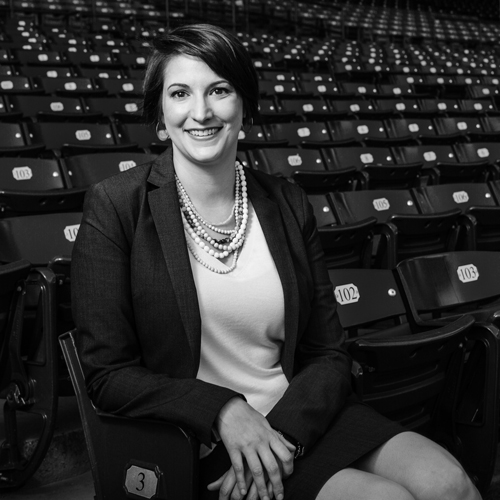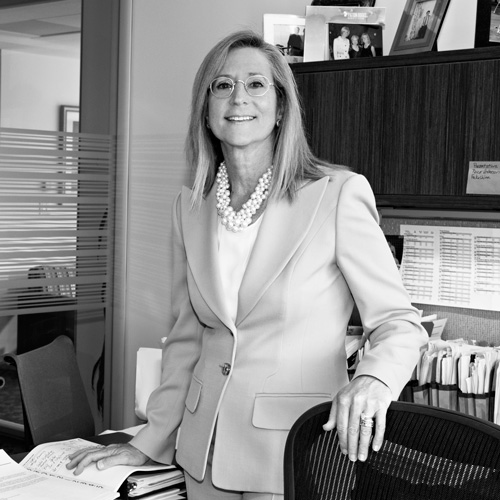Modern Counsel: You were involved in diversity work long before you came to Freddie Mac. Why?
Barry Parsons: First and foremost, I believe that increasing diversity is the right thing to do. Second, I’m convinced that diversity of experience leads to better decision making and better results. Third, our company and our regulator both encourage it, including particular outreach to diverse suppliers.
MC: How has Freddie Mac increased diversity efforts since you joined the legal team?
BP: We have taken several steps: We’ve created a database that includes contact information, specialty areas of practice, and locations of diverse outside counsel who are qualified to do our work. We recently hosted a diversity program for our entire legal division and invited several outside speakers to make presentations—including John Murdock, a NAMWOLF lawyer who spoke about his firm, Benton, Murdock and Potter, and his experience working with NAMWOLF.
Point of Pride
We ask Barry Parsons, “Why is diversity a personal priority for you?”
“Diversity is part of who I am. I’m sure that part of it is the fact that I’m gay and have been subject to discrimination. I have three kids who are Asian, and I’m Caucasian, so I’ve also dealt with interracial issues. I’ve had many friends and roommates of different races and I’ve seen them discriminated against, and I’ve always been moved by those stories. I was quickly placed on a diversity committee when I worked at Crowell and Moring LLP, and my interest in those issues only grew over the 14 years I was there. They continue to grow today.”
MC: What is NAMWOLF?
BP: NAMWOLF is the National Association of Minority- and Women-Owned Law Firms. Shortly after I came to Freddie Mac, I was able to attend NAMWOLF’s national meeting and was impressed, especially with their value proposition and their vetting process. Since then, I’ve developed what I consider to be a very valuable relationship with the organization.
MC: What makes NAMWOLF valuable to your work at Freddie Mac?
BP: From a financial perspective, NAMWOLF firms are typically small and have lower cost structures, overhead, and hourly rates. They are often interested in alternative fee arrangements—and I’m always open to creative solutions that help control our legal costs. Often these attorneys come from big law firms and have the pedigree that goes with that experience, so we often get partner-level, big-firm expertise at a lower cost than a third-year associate. We get the benefit of that experience while saving tens or even hundreds of thousands of dollars.
MC: What about the vetting process? How would an interested law firm become a NAMWOLF member?
BP: It would have to be certified as being minority-owned (which is a status approved by other organizations). It would need a top-tier Martindale-Hubbell review rating. It must be headquartered in the United States or Puerto Rico, have at least three attorneys, and provide corporate references for the work it’s done. Those references are a very important, helpful resource for choosing NAMWOLF firms.
MC: Beyond cost, what has your experience been like working with NAMWOLF firms?
BP: There was a time when a NAMWOLF firm we hired was particularly well-connected, and the person we hired through the firm was well known in the community. His name was Nathaniel Cade, and I had actually met him through the Leadership Counsel on Legal Diversity fellowship program where we were fellows together. Cade knew the judge through regular interactions in the courtroom and was able to give us a lot of extra insight that helped form our litigation strategy. Since then, he has started his own firm called Cade Law, LLC.
MC: What are some useful hiring techniques for recruiting outside counsel through NAMWOLF?
BP: Most importantly, I consider firms’ qualifications. As a litigator, I need to make sure a firm is located in the area where the litigation is taking place and that it has experience doing the work. I usually give the firm a copy of the complaint we’re dealing with and get its impression. I ask what the attorneys know about the judge and opposing counsel and other things that would demonstrate their approach to resolving the litigation.
MC: Are you currently involved in any particular organizational efforts within NAMWOLF?
BP: Currently, NAMWOLF membership is limited to women-owned and minority race-owned law firms. I’m on the national board of directors for the National LGBT [lesbian, gay, bisexual, and transgender] Bar Association, and I have long felt that NAMWOLF should also include law firms that are LGBT-owned. I’ve been serving on a committee to look into that issue and hopefully open up the NAMWOLF membership to LGBT-owned firms in the near future.
MC: How did you get involved with the National LGBT Bar Association?
BP: I graduated law school in 1995, and at the time, there was a big discussion about whether it was better to be “out” on a résumé or not. There were a lot of law firms that wouldn’t hire gay or lesbian attorneys. But by the time I went to my first National LGBT Bar Association conference 10 years ago, the tide had started to change, and I felt empowered. A couple years before coming to Freddie Mac, I joined the association’s board, and after coming to Freddie Mac, I started an in-house committee for the association that, among other things, works to provide opportunities for individuals and firms to network with diverse counsel they might consider hiring.
MC: So is it better to be “out” on a résumé now?
BP: Yes, I think so. Even then I made the decision to do it because, for me, it was a screening device. Many organizations want diverse work forces, and being out might even open up some doors to getting an interview.
MC: What are some diversity goals for Freddie Mac’s future?
BP: We have an ongoing effort to give our attorneys resources they need to easily find diverse firms. We work with a pipeline organization called Just The Beginning that encourages young minority students to consider a career in law. We also partner with the University of the District of Columbia’s law school by paying for summer internships for two students, both of whom worked on public interest legal work for housing issues last summer. And we work with several affinity bar organizations of different demographic groups in a variety of ways. All of this is part of a broad-based diversity effort that has an overall goal of supporting diversity in the legal industry.

